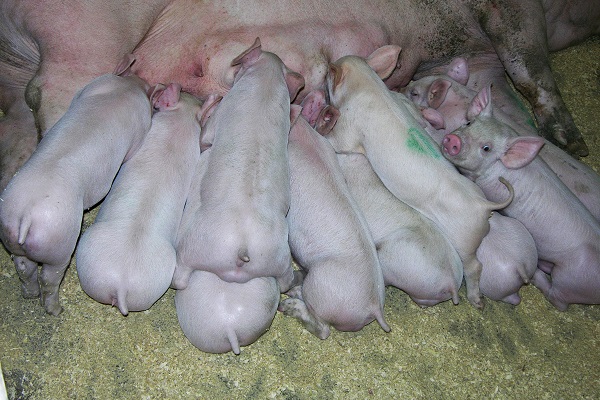

Castration, or the removal of the testicles, is carried out on the male pig which is not needed for breeding. If the blood vessel to the testicle is cut straight through, or pulled, heavy bleeding can occur. Bleeding is reduced by scraping the twisted blood vessel with a knife until it is cut through. Castrated animals are quieter and easy to handle.
Male pigs (boars) can fight causing injury to one another. Castrating the pig makes it put on more fat and the meat does not have a strong piggy smell. Young pigs should be castrated at 2 to 3 weeks of age.
Castrating process
You will need someone to hold the piglet for castration. The pig should be held by the hind legs with its head down and its body should be firmly held between the handler’s knees.
You will need a very sharp, clean knife, scalpel or razor blade. Remove the sow from the litter and if possible put her where she cannot see or hear them.
Clean the scrotum with warm water and soap and dry it.
Move the testicle into the scrotum with your finger and then firmly grip the scrotum below the testicle between your thumb and index finger.
Make a cut 1 – 2 cm long in the bottom of the scrotum. The testicle should pop out through the cut.
Pull the testicle out of the scrotum and cut through the white cord leaving the red blood vessel uncut.
Pull the testicle out slightly further and twist it around several times before cutting the twisted blood vessel by scraping up and down with the knife. This helps to reduce bleeding. Do not pull to break the vessel.
Do not put your fingers in the scrotum. Apply either tincture of iodine, gentian violet, Dettol or an antibiotic powder or a sulpha powder to the castration wound. Remove the second testicle in the same way.
Put the piglets and their mother on clean bedding. Watch piglets for signs of infection in the wound for the next week. Infected castration wounds swell, piglets do not want to walk or are lame.
 Contact Jaguza Support
Contact Jaguza Support